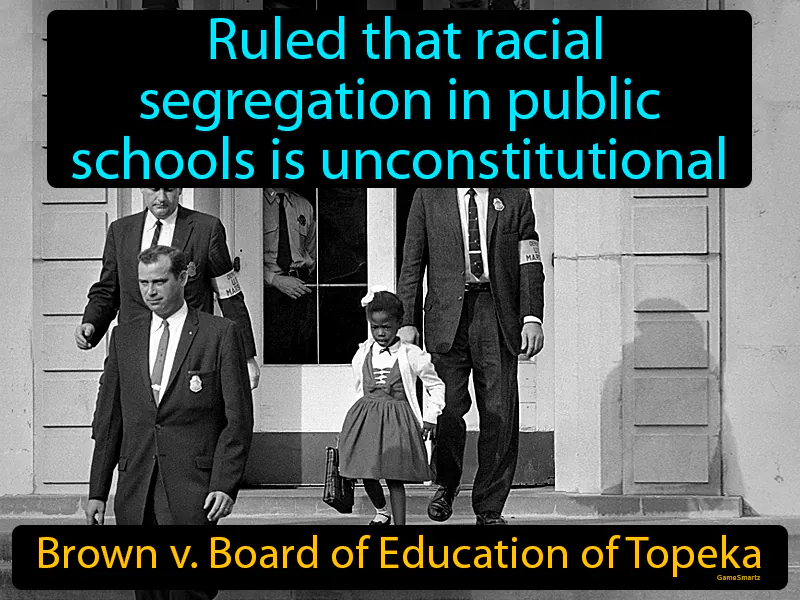Brown V Board Of Education Of Topeka

Brown v. Board of Education of Topeka was a landmark Supreme Court case in 1954 that declared racial segregation in public schools unconstitutional. It was important because it challenged the "separate but equal" doctrine, highlighting the injustices faced by African Americans and sparking the Civil Rights Movement. This case highlighted the ongoing struggle for equality and justice, issues that are still relevant today in debates about racial discrimination and equal opportunities. It connects to people’s lives now by reinforcing the importance of diversity and inclusion in education, ensuring all children have equal access to quality schooling regardless of their race. These ideas impact daily life by promoting fairness and reducing prejudice, helping to create a more equitable society for everyone.
Practice Version

Brown V Board Of Education Of Topeka: Ruled that racial segregation in public schools is unconstitutional. Brown v Board of Education of Topeka. This landmark Supreme Court case in 1954 ended legal school segregation in the U.S.